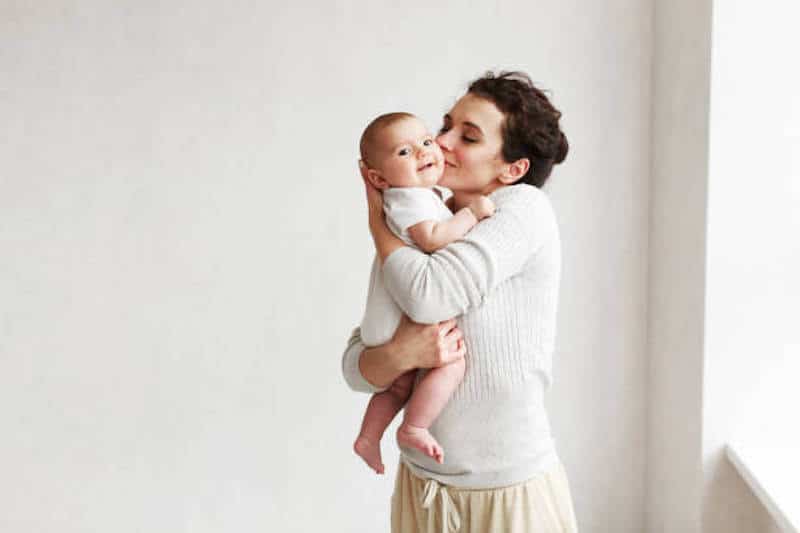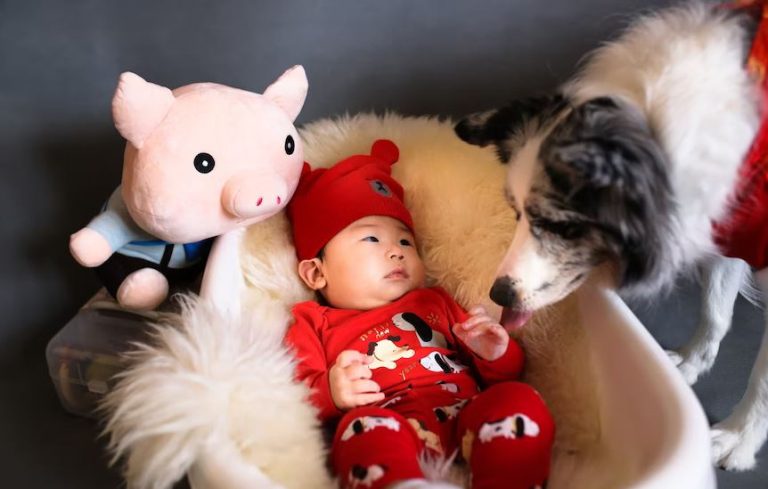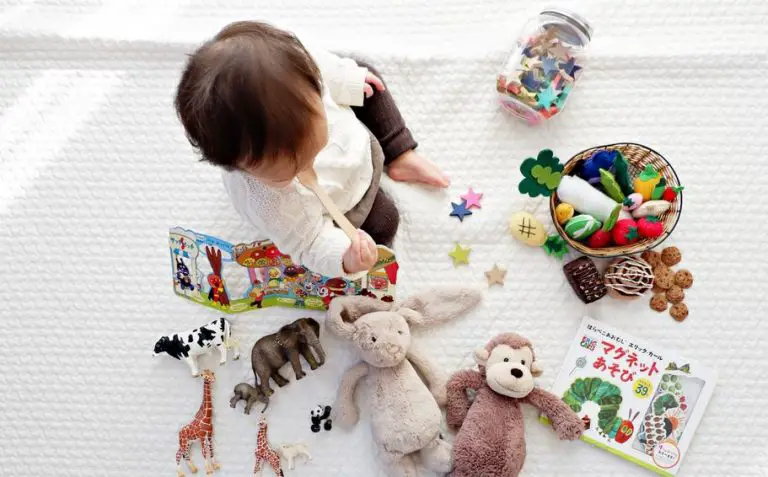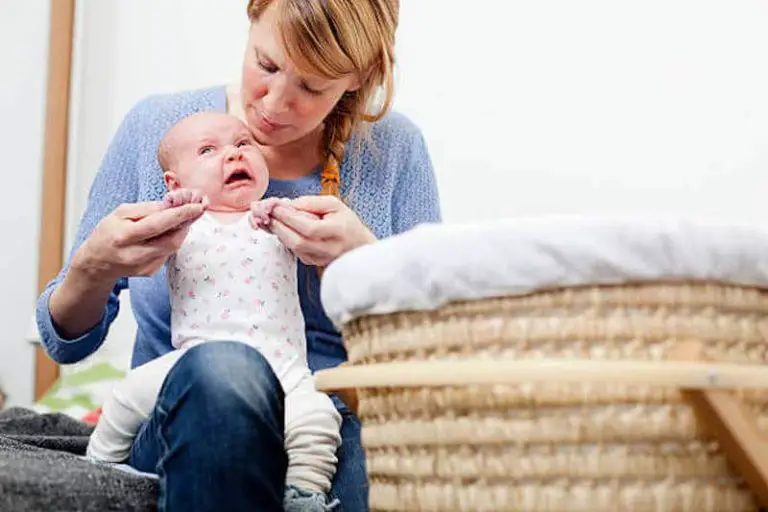Early Social Skills: Encouraging Interaction In Your Newborn
Early socialization means teaching your baby how to interact with others and navigate social situations. This is essential for their overall development and well-being. By fostering these skills early on, you can set them up for success in relationships, communication, and emotional regulation throughout their life.
In this article, we will explore some tips and strategies for encouraging interaction in your newborn so that they can develop strong social skills from an early age.
Note: This post may contain affiliate links, which means if you buy from my link I might make a small commission. This does not affect the price you pay. See the full affiliate disclosure here.

Understand the Importance of Early Socialization
Recognizing the significance of introducing your infant to socialization early on is crucial for their development. The benefits of early socialization are numerous, including improved communication skills, increased self-confidence, and a stronger sense of empathy towards others.
By exposing your newborn to different environments and people, you can help them develop the necessary skills to navigate the world around them.
On the other hand, delaying socialization can have negative consequences on your child’s development. Children who are not exposed to a variety of experiences may struggle with forming relationships later in life or may exhibit behaviors that make it difficult for them to interact with others.
As a parent, it’s important to understand that socialization is an ongoing process that requires consistent effort from both you and your child. By taking the time to introduce new experiences to your infant early on, you can help set them up for success as they grow older.
Engage in Eye Contact and Vocalization
When it comes to engaging with your newborn, there are a few key points to keep in mind. First and foremost, it’s important to respond to their cues as they make them. This helps build trust and establishes communication between you and your baby.
Talking and singing to your little one stimulates their brain development and helps them learn language skills early on. By incorporating these practices into your daily routine, you can foster a strong connection with your child while promoting healthy growth and development.
So, make sure to engage in eye contact and vocalization with your baby. It’s a great way to bond and communicate with them.

Responding to Cues
Stay tuned for tips on how to pick up on your little one’s signals and respond appropriately, building a strong foundation for communication and socialization. Responding to your baby’s cues is an important part of developing their early social skills. By being attentive and responsive to your infant, you can help them feel secure and valued, laying the groundwork for healthy relationships in the future.
Here are some ways you can respond to your baby’s cues:
- Watch for body language: Even newborns communicate nonverbally through movements such as arching their back or turning their head away. Pay attention to these signals so you can respond accordingly.
- Be patient: Sometimes it takes time for babies to express themselves. Don’t be discouraged if it seems like they’re not responding at first – keep trying!
- Use touch: Holding, cuddling, and gently stroking your baby can all help them feel loved and cared for.
- Mirror their expressions: When babies see that you’re reacting in a similar way to them, they learn that their emotions are valid and understood.
- Talk to them: Even if they don’t understand the words yet, talking softly and soothingly can help calm your baby down in stressful situations.
Talking and Singing
Talking and singing to your little one can create a fun and engaging environment that promotes language development and bonding. Babies are born with the ability to recognize human speech, even in the womb. So, it’s no surprise that talking and singing to them from an early age can help lay the foundation for their language development.
Moreover, communication is a two-way street; when you talk or sing to your newborn, they feel more connected to you as their caregiver. This type of interaction can also promote bonding through music.
Nursery rhymes have been around for centuries, but did you know they come with a host of benefits? Not only do they help develop your child’s auditory skills by exposing them to different rhythms and patterns, but they also introduce new words and concepts in an easy-to-remember way.
Singing nursery rhymes together can be a fun bonding activity that encourages your baby’s social skills too! As you sing along with them, try making eye contact or gently touching their hands or feet. These simple gestures will communicate warmth and love while showing your little one how important communication is in forming healthy relationships.

Encourage Playtime and Exploration
Let’s have fun and explore together during playtime with your little one! Encouraging playtime and exploration in your newborn is a great way to promote social interaction.
Interactive toys are a fantastic tool for this, as they provide sensory stimulation that encourages your baby to engage with the world around them. As you interact with your baby during playtime, pay attention to their cues and interests. Follow their lead, responding to their movements and sounds with excitement and enthusiasm.
This will help build trust between you and your baby, while also encouraging them to explore new things at their own pace. Remember, the goal of playtime isn’t just entertainment – it’s about building important social skills that will benefit your child throughout their life.
So don’t be afraid to get down on the floor and join in on the fun – after all, there’s nothing better than bonding with your little one!
Seek Out Social Opportunities
It’s important to actively seek out social opportunities for your newborn. Joining baby groups is a great way to connect with other parents and provide a chance for your child to interact with other babies. These groups often offer playtime, music classes, and other activities that encourage socialization.
Family outings are another way to introduce your child to new people and experiences. Taking them on walks in the park or visiting museums can expose them to different environments and help develop their curiosity and sociability.
Encouraging interaction in your newborn starts from an early age, so don’t hesitate to seek out ways for them to engage with others beyond immediate family members. By doing so, you’re helping lay the foundation for positive relationships throughout their life.

Stay Attuned to Your Baby’s Needs and Reactions
As a parent, it’s crucial to stay in tune with your baby’s needs and reactions. Bonding through touch is an essential aspect of this process and can help you understand your little one better.
Every time you hold, cuddle, or play with your newborn, you’re building a strong emotional connection that will last for years to come.
Reading body language is another vital skill that can help you understand what your baby needs at any given moment. Pay attention to their facial expressions, movements, and sounds they make. Are they smiling? Frowning? Crying?
These cues can give you valuable insights into how they’re feeling or if something’s bothering them. By responding promptly and appropriately to these signals, you’ll be able to build trust with your baby and foster healthy communication skills that will benefit them throughout their life.
Remember that every interaction counts when it comes to nurturing early social skills in your newborn.
Conclusion
You now have a solid understanding of the importance of early socialization and how to encourage interaction in your newborn. By engaging in eye contact and vocalization, you help your baby feel seen and heard.
Encouraging playtime and exploration allows them to learn about their surroundings while developing important motor skills.
Remember to seek out social opportunities for your little one, whether it’s through play groups or simply spending time with family and friends. Be attuned to their needs and reactions, responding with love and patience.
With these tips in mind, you can foster a strong foundation of social skills that will benefit your child throughout their entire life.
So go forth with confidence, knowing that you’re setting your baby up for success!






